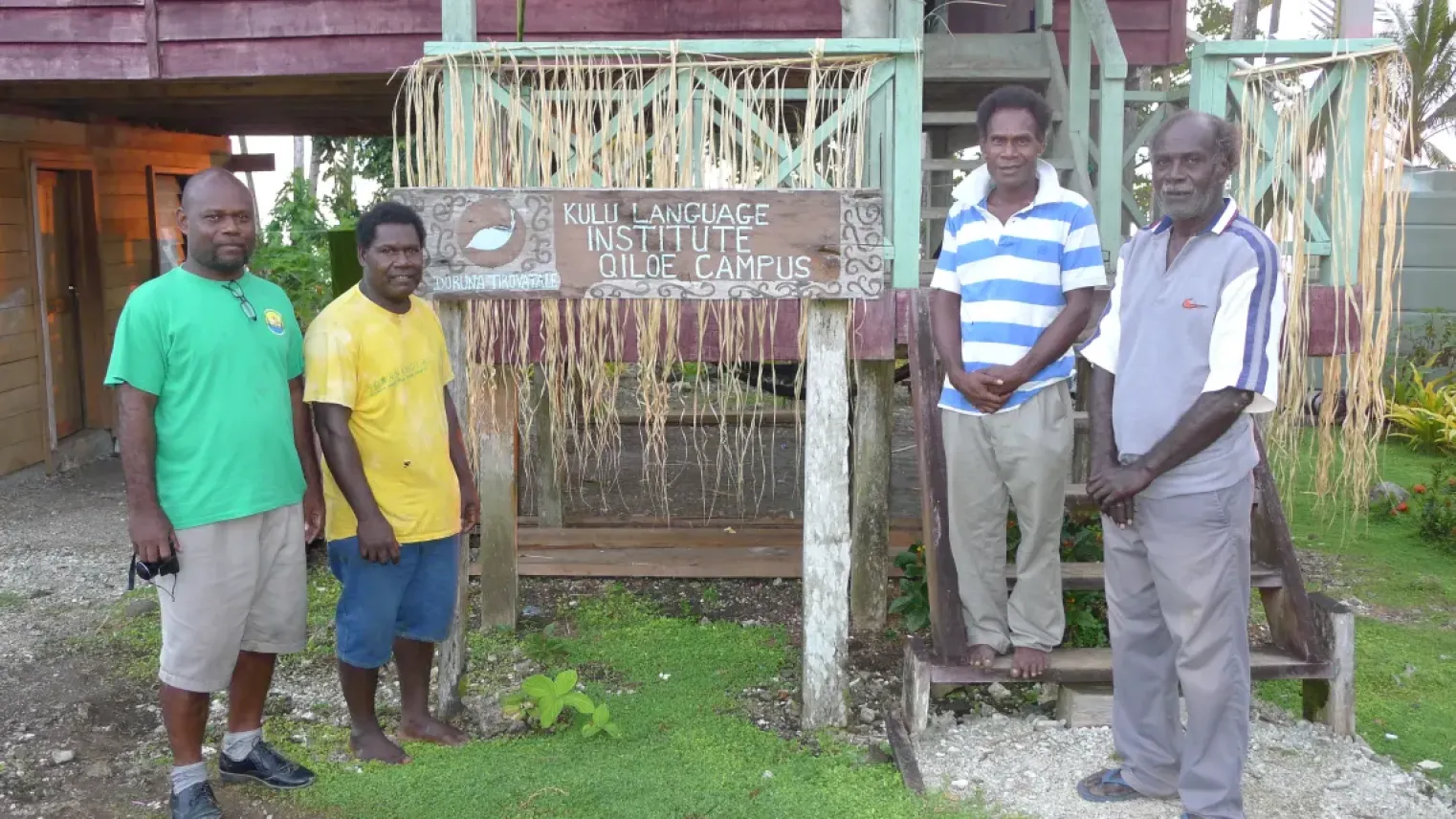The Language Trailblazer: Alpheaus' Story

Growing up in the multilingual society of the Solomon Islands, Alpheaus developed an appreciation for languages from an early age. Sent away to school at the age of five, he quickly realised the necessity of knowing multiple languages to communicate effectively. In addition to his native Luqa language, he learned Kubokota, Simbo, Roviana, and Solomon Pijin, and eventually English for classroom instruction. This diverse linguistic environment sparked his interest in understanding language as a structured system of communication.
From Translation to Transformation: The Kulu Language Institute
The Kulu Language Institute emerged from the Luqa Bible translation project that Alpheaus was involved in between 1997 and 2001. After publishing a trial book translation, it became evident that Luqa speakers needed instruction in reading and analysing their own language. Alpheaus and his team started simple language classes, which evolved into teaching the grammar of Luqa using Luqa itself as the metalanguage. These classes were organized in various communities across Ranoqa island in the Western Province of the Solomon Islands. Eventually, a local chief provided a 2-hectare piece of land where the Institute is now established.
Double Degree Dynamics: Bridging Bible and Linguistics
Alpheaus holds a PhD in Bible from the USA, which he pursued to become a Bible translator and consultant, contributing to translation projects for his language, Luqa, and several others in the Solomon Islands. His second PhD is in Linguistics. While his first PhD involved some linguistics, he felt the need for deeper knowledge. His work on the Luqa grammar, using the language as its own metalanguage, highlighted the necessity for advanced linguistic understanding. This led him to pursue further studies to enhance his skills and knowledge.
Syntax and Semantics: Real-World Applications
Alpheaus' goal with his linguistic research is to analyse Luqa as a linguist, refining and expanding upon his previous work. He aims to use vernacular languages as metalanguages to describe their grammars, providing a template for other Solomon Island languages. Ultimately, he envisions transforming the Kulu Language Institute into an institution that offers linguistics courses and trains local linguists, focusing on the 70 languages of the Solomon Islands.
Vernacular Vitality
While Alpheaus does not feel positioned to speak on vernacular language learning in Australia, he emphasizes the critical importance of such education in the Solomon Islands. The Education Act 2023 views vernacular learning as transitional for English proficiency. However, Alpheaus believes vernacular literacy should be valued for its own sake, enriching students' understanding of their culture, values, beliefs, and ideologies.
Beyond the Lexicon: Personal Passions
Lately, Alpheaus' routine revolves around studying, sleeping, and eating. He has a passion for reading, particularly anything related to language, literacy, and education.
Future Phonemes
Alpheaus aspires to leverage his research to cultivate more linguists in the Solomon Islands, ensuring the continued study and preservation of its diverse languages.